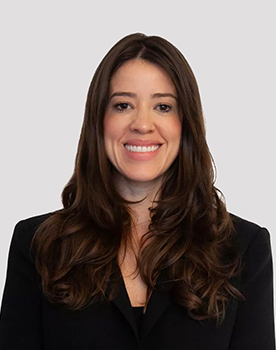
Drafting a Will in New York
Manhattan Will Attorney
At Chaves Perlowitz Luftig LLP, our team of NYC Trust & Estate Attorneys is dedicated to helping you construct and protect your legacy. As seasoned estate planning attorneys, we comprehend the paramount importance of a meticulously drafted will for your family’s future. Whether you require a straightforward will with concise instructions or comprehensive, intricate estate planning, we are here to assist you.
FAQ’S About Wills
Why do you need a NYC Estate Lawyer?
Our Estate Planning Attorneys will:
- Engage in a comprehensive discussion about your goals and the aspects to address in your will.
- Guide you on how New York law may impact your plans and ensure compliance with state regulations.
- Provide insights into potential tax implications relevant to your will.
- Help you to understand the integration of other estate planning tools, such as trusts, within your overall strategy.
- Assess complex estates and draft a clear and comprehensive will that reflects your desires.
- Periodic check-ins to ensure your will remains up to date as life changes occur.
Take the first step toward securing your family’s future by scheduling a free consultation with one of our NYC estate attorneys at Chaves Perlowitz Luftig LLP.
What is a will, and why do I need one in New York City?
A will is a legal document that outlines your wishes regarding the distribution of your assets and the appointment of guardians for minor children after your death. In New York City, having a will is essential as it allows you to have control over how your property is divided among your loved ones and ensures that your wishes are legally recognized. It provides peace of mind by minimizing potential conflicts and uncertainties that may arise without a valid will.
Who can create a will in New York City?
In New York City, any person who is at least 18 years old and of sound mind can create a will. This includes individuals who own property or assets and wish to determine how they will be distributed upon their death. It’s advisable to seek legal advice when creating a will to ensure that it complies with the specific requirements and laws of New York state and city.
How do I revoke or change my will?
To revoke or change a will in New York City, you can create a new will or execute a codicil, which is a document that modifies specific provisions of the existing will. It’s important to follow the proper legal procedures to ensure that the revocation or changes are valid. It is recommended to consult with an experienced estate planning attorney who can guide you through the process and help ensure that your intentions are accurately reflected in the revised will.
Can I include specific instructions for the distribution of my assets in my will?
Absolutely! In your will, you can include specific instructions regarding the distribution of your assets. You can specify which individuals or organizations should receive particular items or amounts from your estate. It is important to provide clear and detailed instructions to avoid confusion or disputes. Consulting with an attorney specializing in estate planning can help ensure that your instructions are accurately articulated and legally enforceable.
What happens if I die without a will in New York State?
If you die without a will, also known as dying intestate, New York laws of intestacy will determine how your assets will be distributed. The distribution will generally follow a predetermined order of priority among your surviving relatives, such as spouses, children, parents, and/or siblings. Dying without a will may result in unintended consequences and may not align with your specific wishes. Creating a will ensures that you have control over how your assets are distributed after your death.
Can I disinherit someone in my will?
Yes, in most circumstances you can disinherit someone in your will in New York. By explicitly stating your intention to disinherit an individual in your will, you can legally exclude certain individuals from inheriting your assets. However, it’s important to consult with an attorney to ensure that your disinheritance provisions are clear, unambiguous, and comply with New York laws to avoid potential challenges or disputes.
How do I choose an executor for my will?
Choosing an executor for your will in New York is an important decision. The executor is responsible for managing your estate, including gathering assets, paying debts and taxes, and distributing property to beneficiaries as specified in your will. When selecting an executor, consider someone trustworthy, reliable, and capable of handling the responsibilities involved. It’s advisable to have open discussions with potential executors and, if necessary, consult with an attorney for guidance on the selection process.
What is the role of a guardian for minor children in a will?
In a will, a guardian for minor children is a person designated by the parents or legal guardians to assume responsibility for the care, upbringing, and well-being of their children in the event of their death or incapacitation. The person appointed as the guardian for your children will have the responsibility of the overseeing and managing of the assets and/or property that are left to your children.
Contact with our experts
Meet the Team






